Understanding AI Ethics: A Primer
The Concept of AI Ethics
AI ethics is a field that explores the moral issues linked to artificial intelligence (AI). It seeks to define what is right and wrong in the creation and use of AI technologies. AI ethics is vital as AI systems become more common in our lives. The goal is to ensure that these systems act in ways that benefit society while minimizing harm. Ethical AI can protect human rights and enable fair and just decisions. By setting ethical standards, we aim to build trust in AI systems.

The Importance of Ethical Considerations in AI Development
When we build AI, ethics must guide us. We can't let AI harm us or our values. As AI grows, its impact does too. That's why we think hard about how we make AI. It's not just about smart tech. It's about making tech that's good for all. Good AI respects our rights. It's fair and open. Also, it must keep us safe. We need rules to make sure AI acts right. So, we teach AI to follow these rules. This keeps our future bright and fair.
Key Principles of AI Ethics
AI ethics has core concepts that guide decision-making. Principles include transparency, fairness, and respect for user privacy. Accountability for AI's impact is vital. Regular audits help ensure AI acts within ethical norms. We must also ensure inclusivity and avoid biases in AI systems.
Top Books on AI Ethics: Recommendations and Reviews
Pioneering Works on AI Ethics
Exploring the roots of AI ethics is vital. These first books set the stage for current debates.
- 'Artificial Intelligence and Life in 2050: On the Future of Ethical Intelligence' by Susan Schneider. This book explores the ethical impact of AI on human life. It looks ahead to 2050, a key year in AI predictions.
- 'Machines of Loving Grace: The Quest for Common Ground Between Humans and Robots' by John Markoff. Markoff's work questions the balance between human-centered and automated systems. It's a pivotal read for understanding AI's role in society.
- 'Life 3.0: Being Human in the Age of Artificial Intelligence' by Max Tegmark. Tegmark discusses how AI will redefine human existence. The book is known for kickstarting conversations about AI's future.
These groundbreaking books are essential for anyone serious about understanding AI ethics.
Must-Read Books for AI Ethics Enthusiasts
For those eager to dive deep into AI ethics, here's a list of must-read books:
- Ethics of Artificial Intelligence edited by S. Matthew Liao. This collection gives broad insights.
- Artificial Unintelligence: How Computers Misunderstand the World by Meredith Broussard. The book challenges common AI myths.
- Weapons of Math Destruction by Cathy O'Neil. It shows how AI can increase inequality and injustice.
- AI Ethics by Mark Coeckelbergh. It brings a philosophical angle to AI's ethical aspects.
- Life 3.0: Being Human in the Age of Artificial Intelligence by Max Tegmark. It explores AI's future impact on life.
These books shed light on ethical dilemmas that AI presents. They offer frameworks for making AI more ethical and just. Whether you're an AI expert or an ethical enthusiast, you'll find valuable perspectives.
The Impact of AI Ethics Books on Thought and Practice
Books on AI ethics shape our understanding and actions. They impact how scholars, policymakers, and tech professionals approach ethical issues. These texts not only inform but also inspire new ways to incorporate ethics in AI. From classroom discussions to tech company policies, these works foster critical debate. They lead to better-designed AI systems that respect human values and rights. As AI becomes more integrated into society, the role of these texts in guiding ethical practices grows even more crucial.
Implementing AI Ethics: Practical Insights and Strategies
Applying AI Ethics Principles in Real-World Scenarios
The real test for AI ethics lies in its application to daily scenarios. Professionals in various fields seek guidance on how to embed ethical principles in AI systems. Companies are now forming ethics boards to ensure adherence to these standards. They focus on areas like data privacy, bias minimization, and user consent. Even in AI-led product design, ethics are becoming a core element. Here, we offer insights into how businesses and developers are implementing AI ethics. We highlight examples of ethical AI in action, providing a blueprint for others to follow.
Case Studies: Successful AI Ethics Implementations
Learn from real success stories in AI ethics with our case studies. These examples show how to apply ethics in AI projects. They offer lessons on what works. Explore how different sectors have used AI ethics successfully. See how companies avoid unethical AI use. These cases can guide your AI ethics strategy. They show how thinking about ethics leads to better AI solutions.
Future-Proofing Your Organization with AI Ethics
To safeguard a company’s future, AI ethics must be at its core. The idea is to prepare for tech shifts and moral issues. Here’s how to create an AI ethics framework for your business:
- Stay Ahead of Legislation: Keep track of AI laws to ensure your company is compliant.
- Promote Transparency: Make sure clients understand how and why AI is used.
- Continual Learning: Encourage teams to stay updated on AI ethics.
- Diverse Teams: Build teams with varied backgrounds to assess AI from many angles.
- Ethics Officers: Assign dedicated personnel to oversee ethical AI practices.
Embedding these steps helps to align AI with human values and ensures long-term trust.
